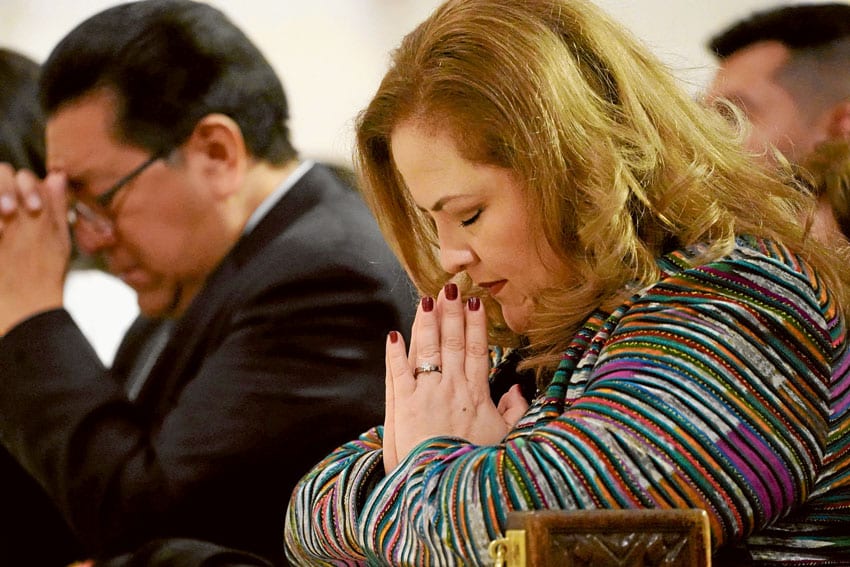
Having painted a rather grim picture of where the Church in Australia is at in this series of articles, it’s time to offer some solutions. The Plenary Council can make resolutions which then go to Rome for adjustment, approval, or rejection.
Yet it’s hard to imagine what the bishops could recommend that would be binding on the Church in Australia that isn’t already binding. For example, they can say that Catholics should attend Mass every Sunday on pain of grave sin – but the Church already teaches this.
However, what’s likely to happen is that the recommendations will be sent to Rome, and any that aren’t possible to achieve – like women’s ordination, divorce and remarriage without annulment, and married clergy – will be edited out there.
A report will then eventually come back from Rome. The problems in the Church in Australia are structural and spiritual. Since the 1980s we have evolved a corporate structure which has allowed the Church to run like a business – including its education system, charities and agencies. We have over 30 dioceses in Australia, with an estimated $30 billion in assets. However, that corporate structure has sometimes isolated us from reality.
The Church in Australia doesn’t need the Plenary Council to make any of the hard decisions that are bearing down on us. It needs some first-rate local leadership.
Our core business as a Church is not asset management, nor is it fundraising or charitable works. It’s connecting human souls with the living God, principally via the Sacraments. The focus of a reforming Church in Australia should be always on helping practising Catholics to continue attending the Sacraments – all of them.
This means they need access to ordained priests, not lay leaders. The single biggest change that needs to be made is the redrawing of some diocesan boundaries. Our current dioceses belong to the days when there was 80 per cent-or-more Mass attendance. This is no longer the case.
Subsidiarity is all very well and good – but not when you have a tiny diocese with around 50 priests and 5,000 practising Catholics next door to a much larger diocese with barely 300 priests and over 100,000 practising Catholics.
We have enough priests in Australia; we just don’t have them in the right places. The Church here will run out of practising lay people long before it runs out of priests. Local bishops can and should also redraw parish boundaries.
Tiny inner-city parishes are largely obsolete; the practising Catholic population has moved into different areas, and almost all of us drive or have access to transport.
Consolidating parishes will free up our priests to travel a great deal more than they have in the past. I don’t mean travelling overseas, leading pilgrimages – I mean in their own dioceses, serving Mass centres very regularly.
There should be a freeze on, or searching scrutiny conducted of new administrative building projects. The one thing that should not be growing right now is diocesan bureaucracy, even when disguised as charities.
Does your diocese really need any more Catholic Offices for (insert cause here) when dozens of parish churches are almost empty? We have plenty of church buildings; in fact, probably too many. It would help to repair the suitably large older churches in the right locations and expand their car parks.
These are the structural problems, but these won’t save the Church in Australia without spiritual renewal.
A bishop-led, energetic re-catechesis on the Sacraments is essential. Catholics need to learn all over again that in order to be a Catholic, you need to believe what the Church teaches to be true and attend Mass and the other Sacraments.
This includes the people who decide they want to be married in a pretty Catholic church but haven’t been to Mass since they were 13 and don’t intend coming back any time soon.
Australian Catholics need to be re-taught the real relationship between Mass, Holy Communion, and Reconciliation: that while attending Sunday Mass is an obligation, receiving Holy Communion isn’t (except once a year at Easter).
We could immediately cease the practice of lay- or deacon-led Holy Communion services in metropolitan areas. It’s completely unnecessary for people to receive Holy Communion outside of Mass in their local church when six other churches in a 10-kilometre radius have daily Mass available.
This is a start. It would be near-essential to have these basic initiatives summarised in the Plenary Council’s final report. If they weren’t it would be a sign we’re not learning from the present reality.
Related article:
